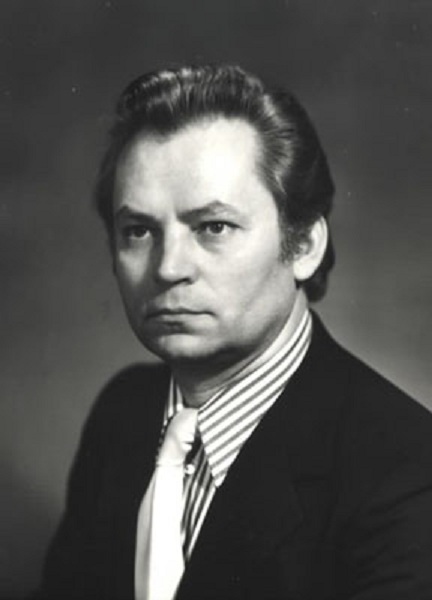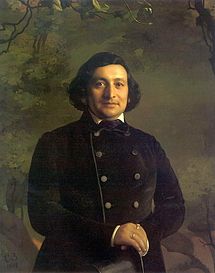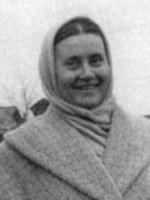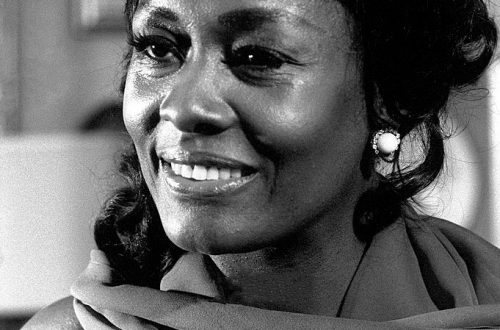
Yuri Mazurok (Yuri Mazurok) |
Yuri Mazurok
Born on July 18, 1931 in the city of Krasnik, Lublin Voivodeship (Poland). Son – Mazurok Yuri Yuryevich (born in 1965), pianist.
The childhood of the future singer passed in Ukraine, which has long been famous for its beautiful voices. Yuri began to sing, as many sang, without thinking about the profession of a vocalist. After graduating from high school, he entered the Lviv Polytechnic Institute.
In his student years, Yuri became passionately interested in musical theater – and not only as a spectator, but also as an amateur performer, where his outstanding vocal abilities were first revealed. Soon Mazurok became the recognized “premier” of the institute’s opera studio, in whose performances he performed the parts of Eugene Onegin and Germont.
Not only the teachers of the amateur studio were attentive to the talent of the young man. He repeatedly heard advice to professionally engage in vocals from many and, in particular, from a very authoritative person in the city, soloist of the Lviv Opera House, People’s Artist of the USSR P. Karmalyuk. Yuri hesitated for a long time, because he had already proven himself as a petroleum engineer (in 1955 he graduated from the institute and entered graduate school). Case decided the case. In 1960, while on a business trip in Moscow, Mazurok risked “trying his luck”: he came to an audition at the conservatory. But it was not just an accident: he was brought to the conservatory by a passion for art, for music, for singing …
From the very first steps in professional art, Yuri Mazurok was very lucky with his teacher. Professor S.I. Migai, in the past one of the famous baritones, who performed with the luminaries of the Russian opera stage – F. Chaliapin, L. Sobinov, A. Nezhdanova – first at the Mariinsky, and then for many years – at the Bolshoi Theater. An active, sensitive, extremely cheerful person, Sergei Ivanovich was merciless in his judgments, but if he met true talents, he treated them with rare care and attention. After listening to Yuri, he said: “I think that you are a good engineer. But I think that you can give up chemistry and oil for the time being. Take vocals.” From that day on, the opinion of S.I. Blinking determined the path of Yuri Mazurok.
S.I. Migai took him to his class, recognizing in him a worthy successor to the best opera singers. Death prevented Sergei Ivanovich from bringing his student to a diploma, and his next mentors were – until the end of the conservatory, Professor A. Dolivo, and in graduate school – Professor A.S. Sveshnikov.
At first, Yuri Mazurok had a hard time at the conservatory. Of course, he was older and more experienced than his fellow students, but professionally much less prepared: he lacked the basics of musical knowledge, the theoretical base acquired, like others, at a music school, at a college.
Nature endowed Yu. Mazurok with a baritone with a unique beauty of timbre, a large range, even in all registers. Performances in amateur opera performances helped him acquire a sense of the stage, ensemble performance skills, and a sense of contact with the audience. But the school that he went through in the conservatory classes, his own attitude to the profession of an opera artist, careful, painstaking work, attentive fulfillment of all the requirements of teachers determined his path of improvement, conquering the difficult heights of skill.
And here the character affected – perseverance, diligence and, most importantly, a passionate love for singing and music.
It is not surprising that after a very short time they started talking about him as a new name that appeared on the opera firmament. Over the course of only 3 years, Mazurok won prizes at 3 most difficult vocal competitions: while still a student, at the Prague Spring in 1960 – the second; the following year (already in the postgraduate “rank”) at the competition named after George Enescu in Bucharest – the third and, finally, at the II All-Union competition named after M.I. Glinka in 1962, he shared second place with V. Atlantov and M. Reshetin. The opinion of teachers, music critics, and jury members was, as a rule, the same: the softness and richness of the timbre, the elasticity and rare beauty of his voice – a lyrical baritone, an innate cantilena – were especially noted.
In the conservatory years, the singer solved a number of complex stage tasks. His heroes were the clever, dexterous Figaro in Rossini’s The Barber of Seville and the ardent lover Ferdinando (Prokofiev’s Duenna), the poor artist Marcel (Puccini’s La bohème) and Tchaikovsky’s Eugene Onegin – the beginning of the artistic biography of Yuri Mazurok.
“Eugene Onegin” played an exceptional role in the life of the singer and the formation of his creative personality. For the first time he appeared on the stage in the title part of this opera in an amateur theater; then he performed it in the conservatory studio and, finally, on the stage of the Bolshoi Theater (Mazurok was accepted into the trainee group in 1963). This part was then successfully performed by him on the stages of the leading opera houses of the world – in London, Milan, Toulouse, New York, Tokyo, Paris, Warsaw … musicality, meaningfulness of each phrase, each episode.
And a completely different Onegin at Mazurok – in the performance of the Bolshoi Theater. Here the artist decides the image in a different way, reaching a rare psychological depth, bringing to the fore the drama of loneliness that destroys the human personality. His Onegin is an earthly, prosaic personality, with a changeable and contradictory character. Mazurok conveys the entire complexity of the spiritual collisions of his hero dramaturgically accurately and surprisingly truthfully, nowhere falling into melodramatism and false pathos.
Following the role of Onegin, the artist passed another serious and responsible exam at the Bolshoi Theater, playing the role of Prince Andrei in Prokofiev’s War and Peace. In addition to the complexity of the entire score as a whole, the complexity of the performance, where dozens of characters act and therefore a special art of communicating with partners is required, this image itself is very difficult both in musical, vocal and stage terms. The clarity of the actor’s conception, free command of the voice, the richness of vocal colors and the invariable sense of the stage helped the singer draw a life-like psychological portrait of the hero of Tolstoy and Prokofiev.
Y. Mazurok performed the role of Andrei Bolkonsky in the first performance of War and Peace on tour of the Bolshoi Theater in Italy. Numerous foreign press appreciated his art and gave him, along with the performer of the part of Natasha Rostova – Tamara Milashkina, a leading place.
One of the “crown” roles of the artist was the image of Figaro in “The Barber of Seville” by Rossini. This role was performed by him easily, witty, with brilliance and grace. The popular cavatina of Figaro sounded incendiary in his performance. But unlike many singers, who often turn it into only a brilliant vocal number demonstrating virtuoso technique, Mazurok’s cavatina revealed the character of the hero – his ardent disposition, determination, sharp powers of observation and humor.
Creative range of Yu.A. The mazurok is very wide. During the years of work in the troupe of the Bolshoi Theater, Yuri Antonovich performed almost all the baritone parts (both lyrical and dramatic!) that were in the theater’s repertoire. Many of them serve as an artistic example of performance and can be attributed to the best achievements of the national opera school.
In addition to the games mentioned above, his heroes were Yeletsky in Tchaikovsky’s The Queen of Spades, with his sublime love; Germont in Verdi’s La Traviata is a noble aristocrat, for whom, however, the honor and reputation of the family is above all else; the vainglorious, arrogant Count di Luna in Verdi’s Il trovatore; the stubborn sloth Demetrius, who finds himself in all sorts of comedic situations (“A Midsummer Night’s Dream” by Britten); in love with his land and fascinatingly telling about the temptations of the miracle of nature in Venice, the Vedenets guest in Rimsky-Korsakov’s Sadko; the Marquis di Posa – a proud, courageous Spanish grandee, fearlessly giving his life for justice, for the freedom of the people (“Don Carlos” by Verdi) and his antipode – the police chief Scarpia (“Tosca” by Puccini); the dazzling bullfighter Escamillo (Carmen by Bizet) and the sailor Ilyusha, a simple lad who made a revolution (October by Muradeli); the young, reckless, fearless Tsarev (Prokofiev’s Semyon Kotko) and the duma clerk Shchelkalov (Mussorgsky’s Boris Godunov). List of roles Yu.A. The mazurok was continued by Albert (“Werther” Massenet), Valentin (“Faust” by Gounod), Guglielmo (“All Women Do It” by Mozart), Renato (“Un ballo in maschera” by Verdi), Silvio (“Pagliacci” by Leoncavallo), Mazepa (“ Mazepa by Tchaikovsky), Rigoletto (Verdi’s Rigoletto), Enrico Aston (Donizetti’s Lucia di Lammermoor), Amonasro (Verdi’s Aida).
Each of these parties, including even short episodic roles, is marked by absolute artistic completeness of the idea, thoughtfulness and refinement of every stroke, every detail, impresses with emotional strength, fullness of execution. The singer never divides the opera part into separate numbers, arias, ensembles, but achieves a stretch from the beginning to the end of the line of through development of the image, thereby helping to create a sense of integrity, logical completeness of the portrait of the hero, the need for all his actions, deeds, whether he is the hero of an opera performance or a short vocal miniature.
His highest professionalism, brilliant command of the voice from the first steps on the stage was appreciated not only by admirers of opera art, but also by fellow artists. Irina Konstantinovna Arkhipova once wrote: “I have always considered Y. Mazurok a brilliant vocalist, his performances become an adornment of any performance, on any of the most famous opera stages in the world. His Onegin, Yeletsky, Prince Andrei, the Vedenets guest, Germont, Figaro, di Posa, Demetrius, Tsarev and many other images are marked by a great inner acting temperament, which outwardly expresses itself rather restrainedly, which is natural for him, since the whole complex of feelings, thoughts and the singer expresses the actions of his heroes by vocal means. In the singer’s voice, elastic as a string, in a beautiful sound, in all his posture there is already nobility, honor and many other qualities of his opera heroes – counts, princes, knights. This defines his creative individuality.”
Creative activity of Yu.A. Mazurok was not limited to work at the Bolshoi Theater. He performed in performances of other opera houses of the country, took part in productions of foreign opera companies. In 1975, the singer performed the role of Renato in Verdi’s Un ballo in maschera at Covent Garden. In the 1978/1979 season, he made his debut at the Metropolitan Opera as Germont, where he also performed the part of Scarpia in Puccini’s Tosca in 1993. Scarpia Mazuroka differs in many ways from the usual interpretation of this image: most often, the performers emphasize that the chief of police is a soulless, stubborn tyrant, despot. Yu.A. Mazurok, he is also smart, and has tremendous willpower, which allows him to hide passion, deceit under the guise of impeccable good breeding, to suppress feelings with reason.
Yuri Mazurok toured the country and abroad with solo concerts a lot and with success. The singer’s extensive chamber repertoire includes songs and romances by Russian and Western European authors – Tchaikovsky, Rachmaninov, Rimsky-Korsakov, Schubert, Schumann, Grieg, Mahler, Ravel, song cycles and romances by Shaporin, Khrennikov, Kabalevsky, Ukrainian folk songs. Each number of his program is a complete scene, sketch, portrait, state, character, mood of the hero. “He sings wonderfully … both in opera performances and in concerts, where a rather rare gift helps him: a sense of style. If he sings Monteverdi or Mascagni, then this music will always be Italian in Mazurok … In Tchaikovsky and Rachmaninov there will always live an inescapable and sublime “Russian principle” … in Schubert and Schumann everything will be determined by the purest romanticism … such artistic intuition reveals the true intelligence and intellect of the singer ” (I.K. Arkhipova).
A sense of style, a subtle comprehension of the nature of the musical writing of one or another author – these qualities were reflected in the work of Yuri Mazurok already at the beginning of his operatic career. Vivid evidence of this is the victory at the international vocal competition in Montreal in 1967. The competition in Montreal was extremely difficult: the program included works from a variety of schools – from Bach to Hindemith. The most difficult composition by Canadian composer Harry Sommers “Cayas” (translated from Indian – “Long ago”), based on authentic melodies and texts of Canadian Indians, was proposed as a mandatory for all contestants. Mazurok then brilliantly coped with both intonation and lexical difficulties, which earned him the honorable and joking nickname “Canadian Indian” from the public. He was recognized by the jury as the best of 37 contestants representing 17 countries of the world.
Yu.A. Mazurok – People’s Artist of the USSR (1976) and the RSFSR (1972), Honored Artist of the RSFSR (1968). He was awarded two Orders of the Red Banner of Labor. In 1996, he was awarded the “Firebird” – the highest award of the International Union of Musical Figures.





